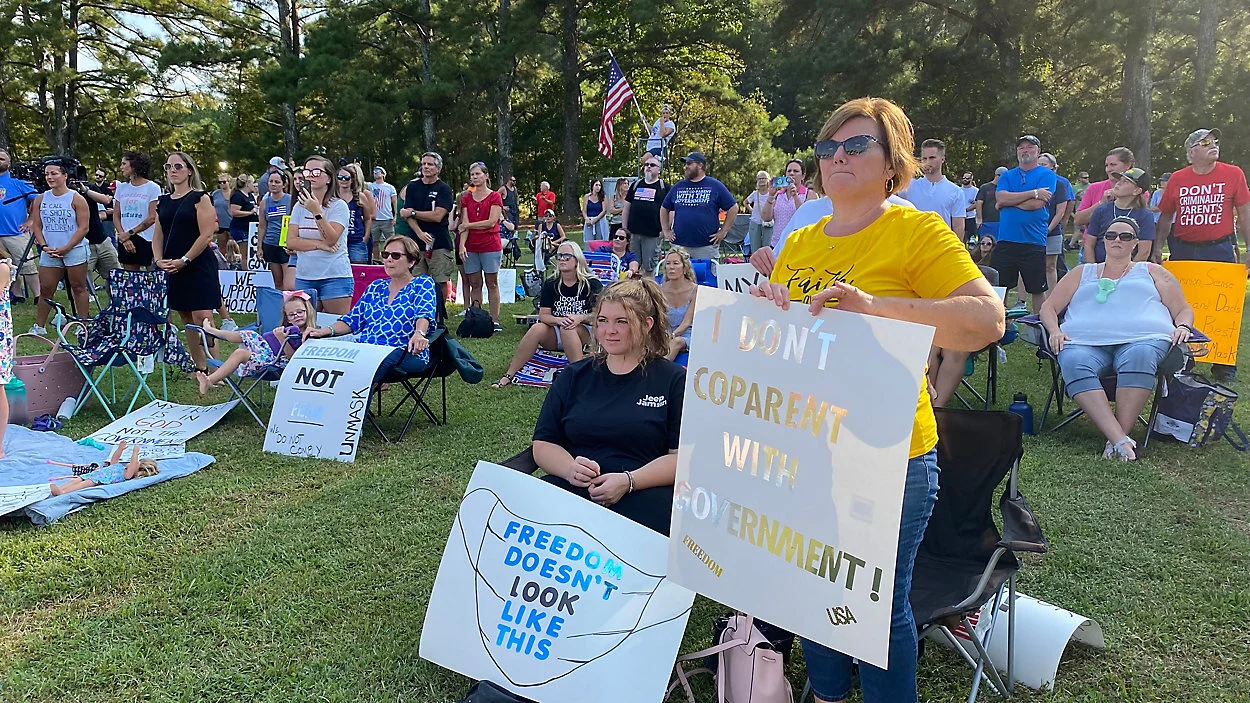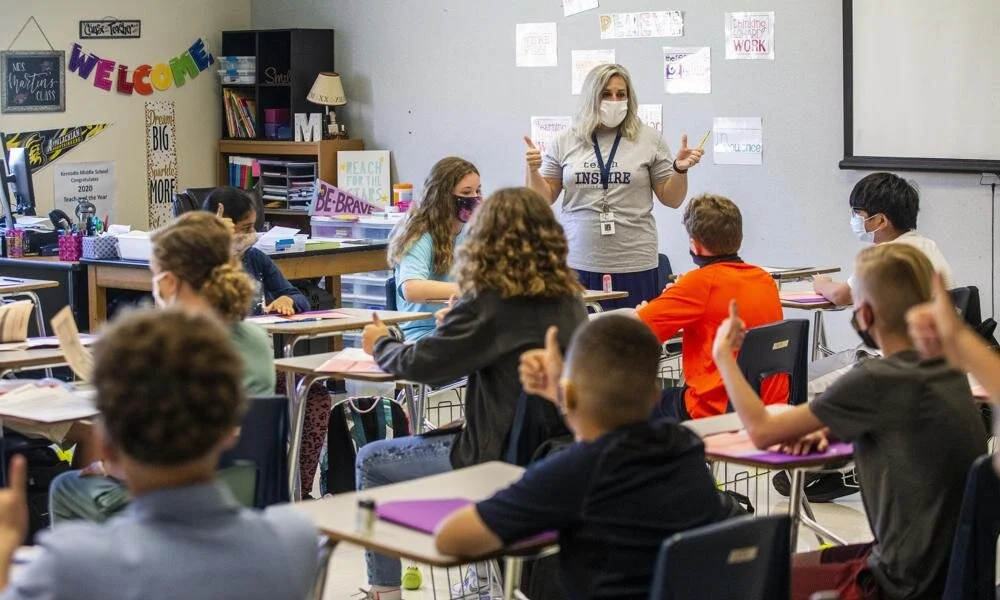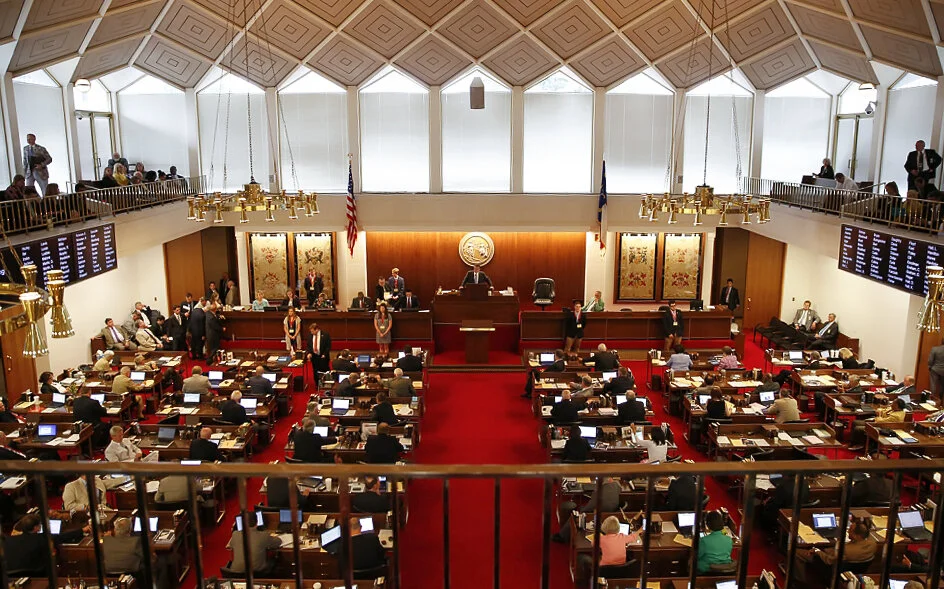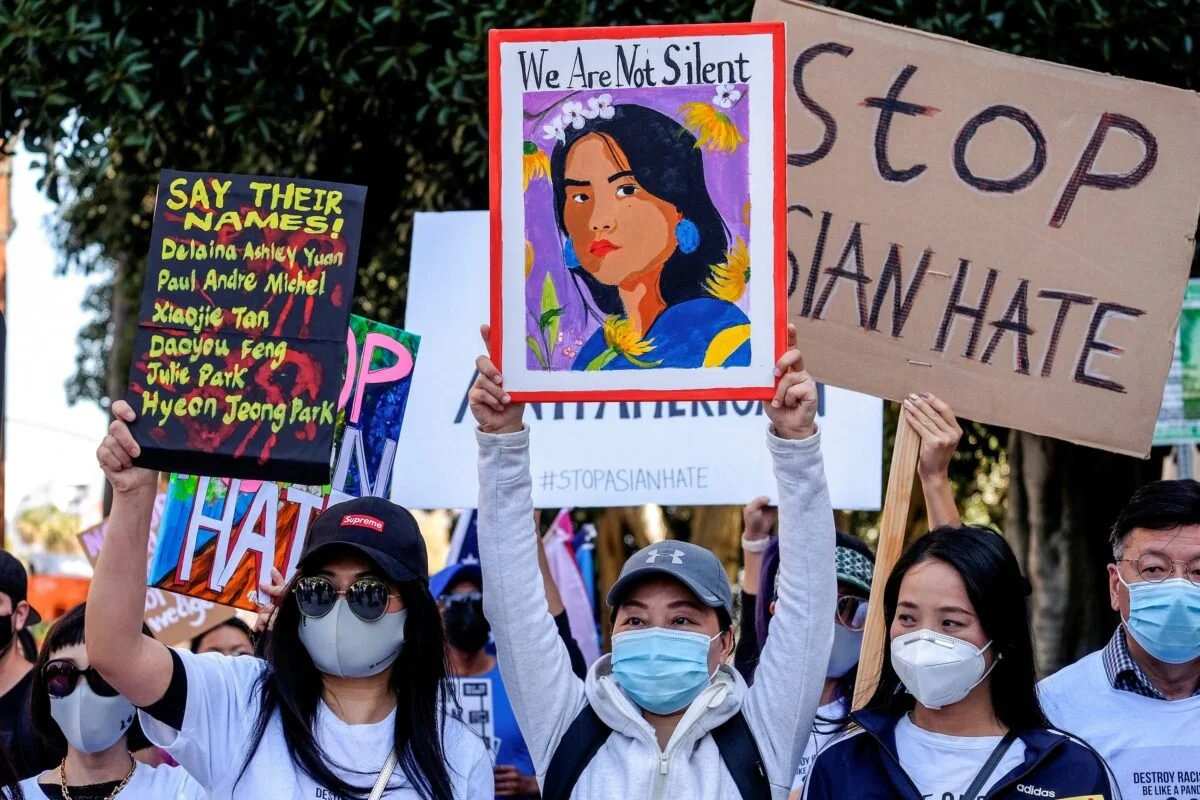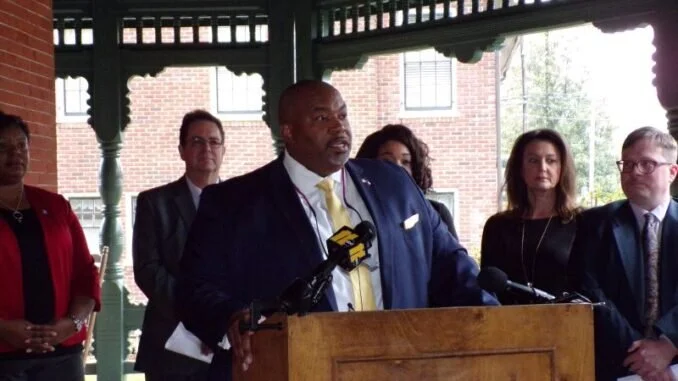“The monthly debates, although contentious, allow each side to ensure that their voices are heard on this highly controversial issue. It also allows the current policy to be continually tested to show its strengths and weaknesses, allowing the board members and parents to weigh each side.”
Read More“As the Board of Governors and the Board of Trustees continue to take a larger, politicized role in university affairs without consulting student leaders and faculty members, this coalition may be the final hope to bring autonomy back to Chapel Hill.”
Read More“Cooper’s claim that the bill [regarding protests] is an attempt to deter people from exercising their constitutional rights is highlighted by the timing of the bill’s introduction during a wave of protests in which many of the participants were African-American, alongside the fact that Republicans have passed legislation considered discriminatory against African-Americans before.”
Read More“While the 2020 elections were monumental for a number of reasons, the Republican victories in North Carolina’s legislature have given the party the opportunity to shape the state’s politics for the next ten years.”
Read More“The town hall, which was held in the Pit at UNC-Chapel Hill and directed at student journalists, is one of several events throughout Beasley’s campaign to connect to North Carolina college students.”
Read More“In examining the bills, the impact of input by pro-law enforcement organizations like the North Carolina Sheriffs’ Association (NCSA) is evident. For example, while HB 436 mandates mental health awareness training for officers, it requires only two hours of training every three years – hardly a step up from the previous requirements, and a win for the NCSA in maintaining the status quo.”
Read More“A debate rages over a program that has distributed over $750,000 in state funds to help low-income families afford private school tuition — North Carolina Opportunity Scholarships. In the 2020-2021 school year, 456 private schools received money from Opportunity Scholarships, with 12,284 families receiving scholarships. Opponents of Opportunity Scholarships argue it is wrong to take public funding and invest it into private schools largely unaccountable to the state.”
Read More“Many that have come out against the vaccine mandate have cited privacy concerns, believing that the Constitution does not allow the government to force people to get a vaccine. In reality, constitutional precedence does not look favorably upon this argument.”
Read More“The fractious national debate about COVID-19 has perhaps been most divisive on issues related to schools and education. In North Carolina, however, this debate was surprisingly tame.”
Read More“There is only one public high school mandating a vaccine for students — and only for its athletes — but many are requiring their employees to do so. As students begin to return to campus and classrooms, will vaccines prove to be the only true safeguard against a deadly virus? Are schoolwide vaccinations inevitable?”
Read More“The denial of tenure for Ms. Hannah-Jones prompted calls for transparency and stringent warnings of its effects on alienating UNC’s present and future faculty. In a statement following the initial events, UNC’s Hussman School of Journalism and Media writes that by denying Ms. Hannah-Jones tenure -- a graduate of UNC (Masters, 2003) and whose honors include the Peabody Award and MacArthur ‘Genius’ Grant and Fellowship -- it “unfairly moves the goalposts and violates long-standing norms.”
Read More“Private school vouchers are a form of state-funded financial aid for K-12 students. In North Carolina, families of low-income students and students with disabilities can apply for private school vouchers. If granted, the vouchers use public funding to offset much of the tuition and fees charged by private schools.”
Read More“It is likely that marijuana will be legalized in North Carolina, however, whether it will be for recreational use or medical use remains to be seen. Additionally, a legalization timeline is still unknown. There is no doubt many people believe marijuana could be beneficial, especially for those with medical issues; there could also be economical benefits that could cause a boom in North Carolina’s economy. Democrats are already in support of the issue, but they will need more Republican support if they want to secure “joint” support on the issue.”
Read More“North Carolina voters could be forgiven for forgetting about North Carolina’s Voter ID requirements, as they did not have to deal with them last fall due to injunctions issued by a federal judge and by the North Carolina Court of Appeals in separate cases. The State’s current Voter ID Law, Senate Bill 823, was passed in late 2018, over the veto of Governor Cooper, and is currently being challenged as unconstitutional for intentionally discriminating on the bases of race in the case of Holmes v. Moore, a tough thing to prove given the legislative history of the bill.”
Read More“As many state legislatures across the U.S. have introduced “school choice” bills to divert public education funding to private schools, the North Carolina General Assembly has joined the fray. Republicans in the North Carolina State House of Representatives introduced HB 32 during the first week of the legislative session in January. Last week, on April 1st, the bill moved to the Committee on Rules, Calendar, and Operations of the House, as it progresses through the governmental process on its way to a vote on the House floor. What exactly is included in this bill and what is its intended consequence for both public and private schools?”
Read More“On March 30th, the Senate passed the Excellent Public Schools Act. Though Democrats offered some criticism during a rare questioning period held by Sen. Berger, most lawmakers expressed support for the bill and the vote was unanimous. Sen. Gladys Robinson, D-Guilford, pointed out that COVID-19 has only lowered literacy rates and has ‘left behind’ a number of students who may lack technology, parental support, or other resources crucial to staying afloat during remote learning. Robinson argued that ‘The ability to read is the background, the foundation of everything.’”
Read More“In the wake of the deadly Atlanta spa shooting that sent shockwaves through the nation in March, many North Carolina lawmakers are reviving efforts to pass a hate crime legislation. Previously introduced in 2018, the reintroduction of this bill is not only in response to the recent shooting, but also to the surge in violent crimes being committed against the Asian American community since the start of the pandemic.”
Read More“However, Khater took a different path that led him to Chapel Hill, North Carolina. He and his brothers owned Frutta Bowls health food cafe on Franklin Street until it closed and he moved to Pennsylvania to start another college smoothie shop, which is now also closing. Though he never officially had a North Carolina address, both his LinkedIn profile and past interviews indicate he was the owner of the Chapel Hill establishment for over a year.”
Read More“North Carolina Senate Bill 300 seeks to reform policing in North Carolina, addressing some of the issues highlighted by the horrific death of George Floyd this past summer. More controversially, however, the bill would reclassify rioting offenses from Class 1 misdemeanors to Class H or G felonies in response to violence that occurred during some protests over the summer. With a vague definition of what constitutes a riot, however, some believe that this could harm individuals wrongly arrested.”
Read More“In one of his first official acts as Lieutenant Governor, Mark Robinson has formed a new committee, “Fairness and Accountability in the Classroom for Teachers and Students” (F.A.C.T.S.). This committee is dedicated to giving students, parents, and school faculty “a voice to speak out about cases of bias, inappropriate materials, and indoctrination they see or experience in schools.”
Read More
